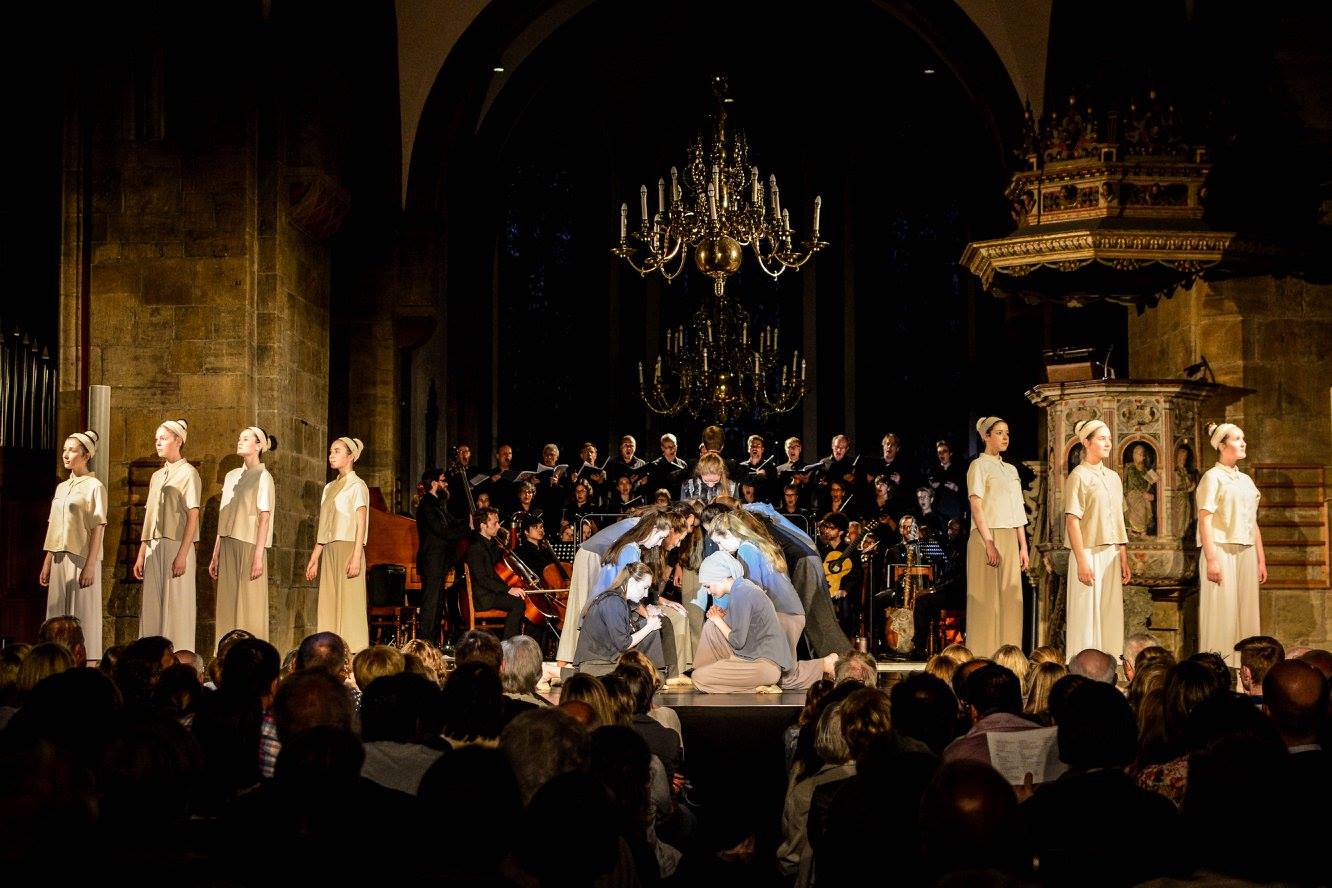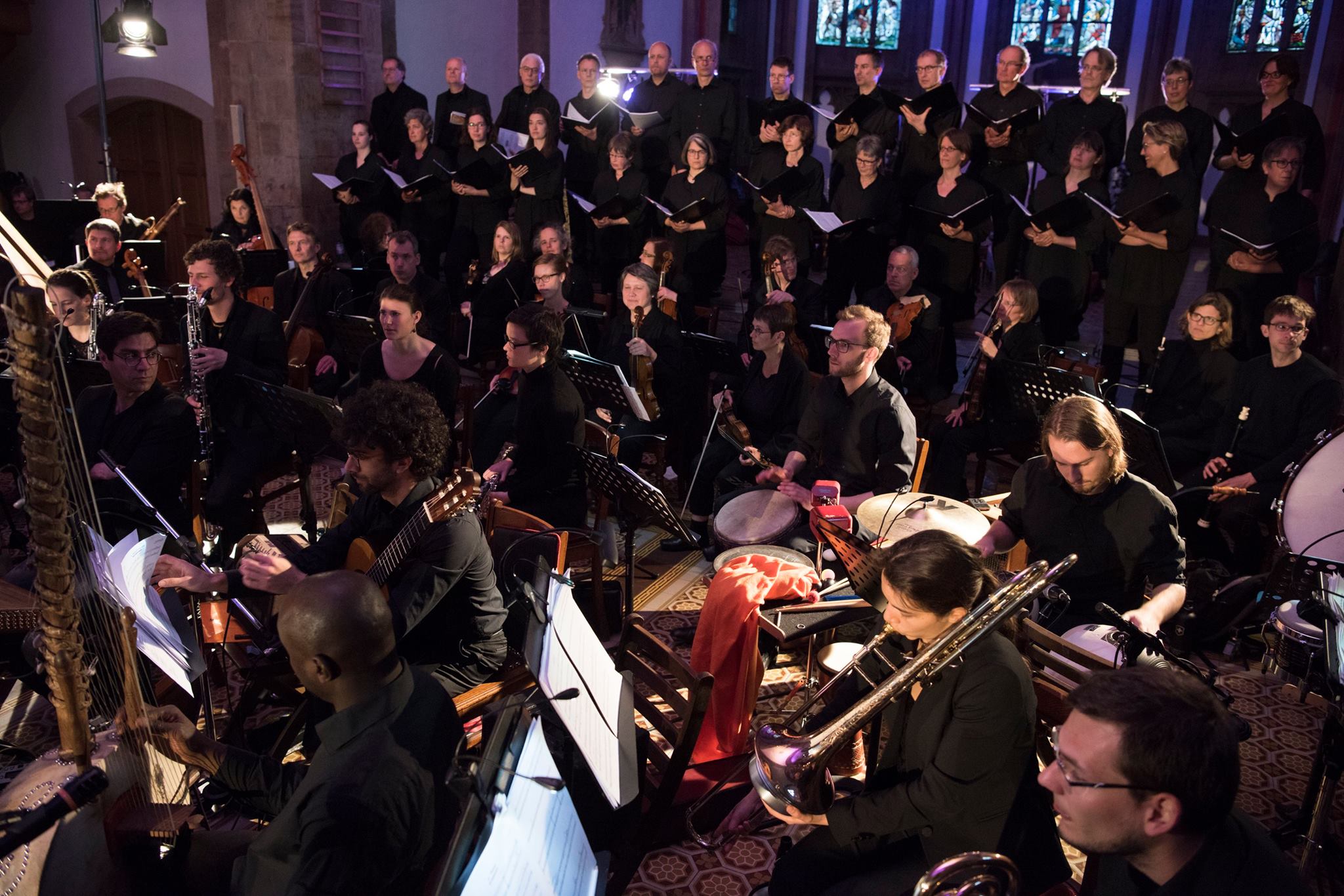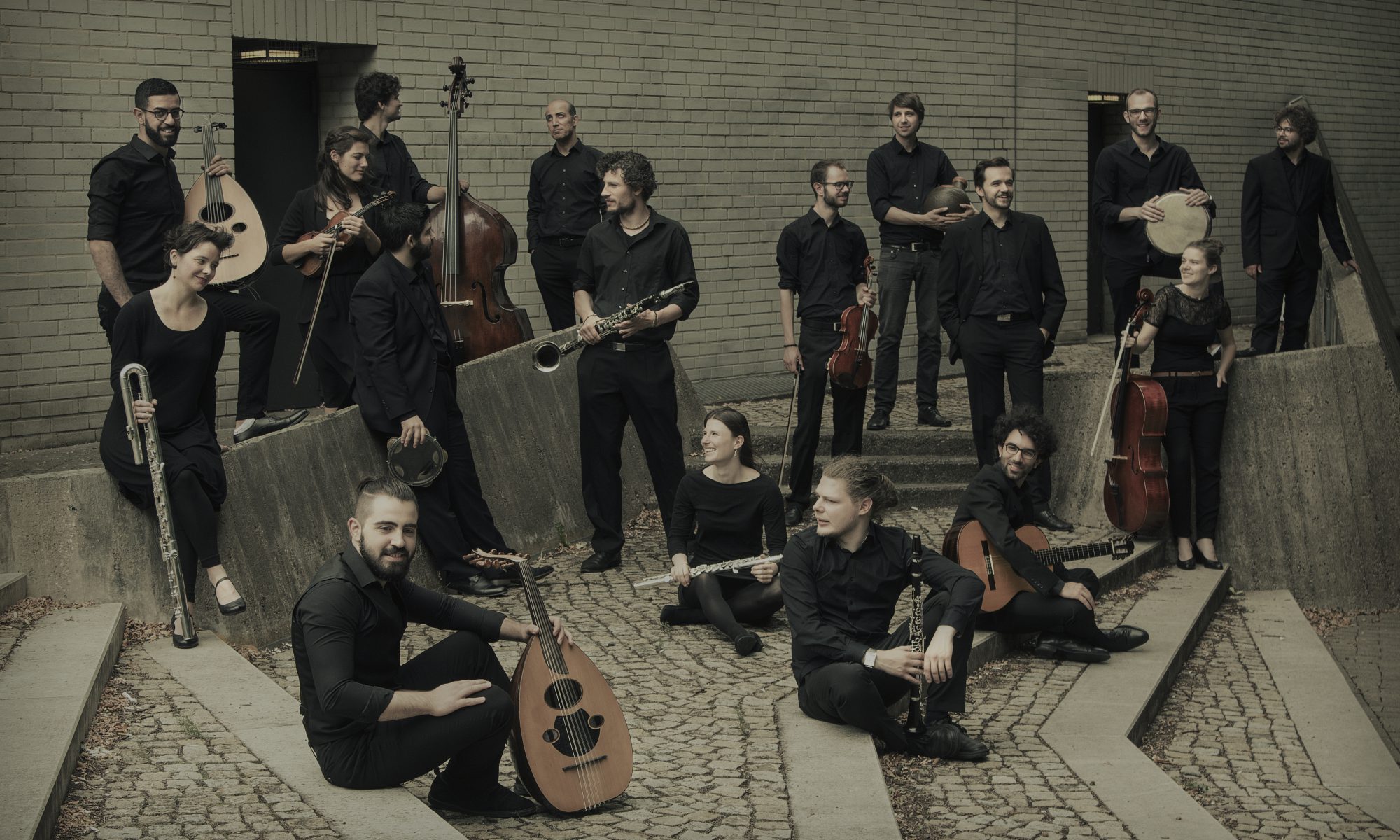“MessiaSASAmbura by Maximilian Guth was performed at the International Workshop Transcultural Music Traditions of the Balzan Musicology Project Towards a Global History of Music. The speakers and discutants of the workshop, coming together from 16 countries around the world, greatly appreciated the musical transculturality which this ingenious composition by Maximilian Guth demonstrates. Introduced by a commentary of the composer and conductor, the concert formed the appropriate musical high point of a conference devoted to interactions between world cultures and historical epochs.”
“In his imaginative work, Maximilian Guth adopts political and social problems and hence found a very individual way of composing. His artistic focus, among other things, is to relate different musical cultures to each other. His musical-compositional work hereby becomes a medium of mutual integration.”
“Maximilian Guth succeeds in merging African stylistic elements and musical practice with the concept of form and the art of instrumentation of the European tradition of music, while leaving each part with its own originality.
immediate and of great force Guth’s music is not about the clearing of differences, about levelling out but about tolerance
a vision for freedom and togehterness
“Maximilian Guth had gone with his interpretation on unknown territory. Skillfully, he used the oratorio with African music styles. Thus, in a tense contrast between Handel’s Baroque musical language and African tonality and rhythm, the purely European is extended to a multi-ethnic concept of culture. ,I would regret if I had entertained my listeners well – I wish to make them better’ With these words, Handel had made it absolutely clear what he really wanted with his Messiah. MessiaSASAmbura met this demand in every way. For minutes, standing ovations of the audience were thanks and reward.“ „Maximilian Guth is particularly impressed by the artistic possibilities offered by a confrontation of music of different cultures and their respective stylistics. He takes an interest in matters of intercultural dialogue, which reflects in an impressive manner in his activity as a composer.”
“Guth’s ,Hora’ is very intimate and beautifully written with its current reference to conflicts of religions and cultures.”
“‘Hora’ by Maximilian Guth (first Preis) went into the meditative scenery with a quiet final solo of the saxophone. Previously experienced a musical tightrope walk between the shared experience of the scripture religions, meant to hear muezzin calls bells.”
“Den Auftakt machte Maximilian Guth mit dem Stück „Karanga“. Inspiriert worden sei er dabei durch seineTansania-Reisen. Dies spiegelte sich auch im Klang der Trommeln und den prägnanten Rhythmen wieder, die zum Ende hin mit einem letzten großen Posaunensolo in stillem Schweigen endete. Die Ruhe übertrug sich auch auf das Publikum, das erst nach einem kurzen, gänzlich stillen Moment mit tosendem Applaus einsetzte. Begeistert zeigte sich auch die Bürgermeisterin der Stadt Braunschweig, Cornelia Rohse-Paul, die die Leistung des noch recht jungen Musikers in höchsten Tönen lobte. „1992 geboren und dann solch ein bewegenden Stück zu komponieren – ich war begeistert.“
“Stehende Ovationen für „Karanga“ beim Benefiz-Konzert des Lions Club. Zwischen Mendelssohns Ouvertüre zu „Die Hebriden“ und Tschaikowskis „Pathétique“ bettete das Junge Sinfonieorchester Hannover (JSO) die Uraufführung von „Karanga“ ein. Die musikalische Hommage gilt Tansania, einem Land, das der erst 22-jährige Komponist Maximilian Guth seit 2011 mehrfach bereist hatte.
Prof. Dr. Reinhard Strohm – director Balzan Musicology Project „Transcultural Music Traditions: Towards a Global History of Music“
Prof. Dr. Benjamin Lang – Zürcher Musikhochschule | Hanns Eisler Musikhochhschule Berlin
This results in an idiosyncratic, strange and yet intimate world of sound.”
Prof. Christoph Hempel – Hannover University of Music, Drama & Media
“Guth chose Handel’s themes, edited and alienated them to finally dress them in a fascinating new orchestral grab.
Most striking are the muted colors of the instrumentation, which is dominated by the low register. He creates a contrast to the brilliant highs of the Baroque orchestra and approaches to a warm, African sound idiom.
The effect this instrumental suite has on the listener is immediate and of great force: avantgarde soundscapes from which melodic lines of the solo instruments suddenly emerge, whispered and shouted language passages, pithy rhythms; and through everything shimmers again and again the original of Handel.
World knowledge that you can not see.”
full article – Christian Helming, Mindener Tageblatt MT – „MessiaSASAmbura – Instrumentalsuite” 2016
“The motto of the work – „Weite wirkt“ – is a conscious affirmation of the stylistic and cultural pluralism. Guth’s music is not about the clearing of differences, about levelling out but about tolerance, about withstanding of what first seems strange without fear and prejudice. Then one could experience that the ‘clash of cultures’, the much heralded but even more feared collision of different cultures can very well be gainful.”
full article – Matthias Gans, Neue Westfälische Zeitung – „MessiaSASAmbura“ 2016
“Guths Musik lässt die Klangformen des Asambura-Ensembles bestens zur Geltung kommen. Die Stücke wachsen meist aus wenigen Klängen heraus, die sich dann zu rhythmisch prägnanten Klangräumen formen. Damit bilden sie einen spannenden Kontrast zu Händels barocker Musiksprache, ohne zu ihr in Konkurrenz zu treten.
Dieses szenische Oratorium rückt die symbolische Bedeutung des Lebensweges Christi – vielleicht wieder – in der Vordergrund. In einer Zeit, in der der Glaube an Wunder, zu denen das Leben und die Wiederauferstehung Christi zweifellos gehören, so schwerfällt, ist die Betonung der symbolischen Botschaft darin ein sehr moderner Gedanke: Der Messias als symbolischer Ausdruck für die Kraft des Lebens angesichts des Todes, des Lichtes in der Dunkelheit, für den Glauben an die Hoffnung angesichts allgegenwärtiger Verzweiflung ist eine der zentralen Botschaften, die weit über Länder und Konfessionen hinaus wirken kann – und die in der Inszenierung in der Marienkirche mit vielen Sinnen erfahrbar war.”
vollständiger Artikel – Jochen Lewin, Mindener Tageblatt MT – „MessiaSASAmbura“ 2016
“Handel’s work is the common thread, yet the classical music tradition is broken in several places. Example is ‘Babel’, written by Guth with the Iranian Ehsan Ebrahimi. The biblical motif of the Tower of Babel and the confusion of languages stands for the tensions in the encounter of different cultures.
With MessiaSASAmbura Guth wants to put the German and African music culture on a par with the existent contradictions. At the end of the oratorio, Guth has set a vision for peace and togetherness: ,We must counteract the current tendencies of hardening the ‘other’.”
Thomas Krüger, Unsere Kirche UK – UA „MessiaSASAmbura“ 01.05.2016
The musical level and the quality of the interpretation were without exception outstanding. The tension never subsided, the deep symbolism of the work and its associative power of imagination were experienced in every phase with all senses.
full article – Bernd Heumüller, Die Glocke – „MessiaSASAmbura“ 2016
Prof. Tobias Rokahr – Musikhochschule HMTM Hannover
Thorsten Wolf, Saarbrücker Zeitung Homburger Lokalteil – UA „Hora“ 22.11.2015 in Homburg
Karlheinz Dettweiler, Rheinpfalz Zweibrücken (Kultur regional) – UA „Hora“ 22.11.2015 in Homburg
Max Förster, Regionalnachrichten aus Braunschweig – Aufführung „Karanga“ 14.11.2015
Bereits im Jahr 2012 reifte bei ihm die Idee, nach einem neuerlichen Besuch in Mtae in den Usambarabergen setzte er sie in die Tat um. Vier Monate komponierte Guth an diesem Glanzstück. Es gelang ihm hervorragend, die Faszination der Dialektik zwischen rhythmischer Dichte, tranceartigen Elementen und afrikanischen Musikstilen auf die Technik des westeuropäischen orchestralen Bläserklangs zu übertragen. Er bediente sich dabei auch dem Prinzip der reißverschlussartigen Verzahnung, wie sie oftmals in der Amadinda-Musik in Uganda vorzufinden ist.
Mit „Karanga“ wurde der 1992 in Bielefeld geborene Guth im vergangenen Jahr erster Preisträger beim JSO-Kompositionswettbewerb. Viele erste Plätze bei nationalen und internationalen Kompositionswettbewerben hat er bereits in seinem jungen Leben gewonnen. Mit stehenden Ovationen für den Komponisten und das Orchester mit seinem Dirigenten Tobias Rokahr brachten die Zuhörer ihre Begeisterung zum Ausdruck.”
Reinhold Krause, Neue Deister-Zeitung Springe – Uraufführung „Karanga“ 13.02.2014

composition | asambura-ensemble